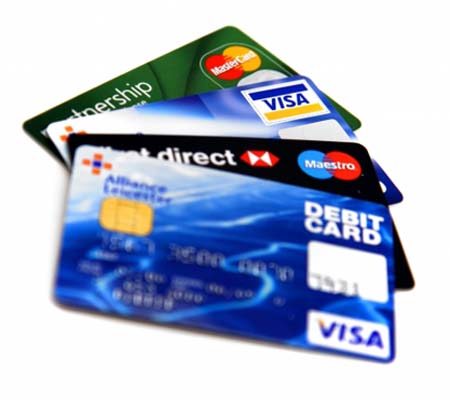Posted by: Andrew Moran

Many of us use credit cards on a daily basis as a means of convenience in order to purchase the goods we need without carrying large amounts of cash on-hand. In order to be approved for a credit card, or any other type of loan, consideration must first be given to the individuals credit score. A credit score is also known as a FICO score, moreover, it is the score derived from the Fair Isaac Corporation. The credit score that they develop ranges from 300-850, and takes all types of credit, mortgages, and loans into account. 30% is determined by your payment history; 30% is based on the amounts you owe each of your creditors, and how that compares with the total credit available to you; 15% is based on the length of your credit history, how long you have had accounts, and how long it has been since there was any activity; 10% is based on the number of accounts you have recently opened compared with the total number of accounts you have; finally, 10% is determined by the types of credit you have used.
This FICO score can have significant implications regarding future home loans, auto loans, college loans, etc. In order to receive the best loans with the best rates a score of 700 or better is generally needed. Since FICO scores are extremely volatile, it is important to make sure you avoid falling into credit traps. Five things that everyone must try and avoid are:
1. Late Payments
2. High Card Balances
3. Closing Credit Card Accounts
4. Having Too Many In-Store Credit Cards
5. Fines
Avoiding all of these things is sure to provide a consumer with a relatively good credit score. Having a good credit score is essential for obtaining future loans, and without a good FICO score, it is nearly impossible to get loans. For instance, merely applying for a home loan will make your FICO score drop an average of 5 points. The score will drop because creditors will request a copy of your credit report in order to make a decision. This inquiry goes down on your report, and will affect your FICO score for a year. In this regard, it is extremely important to manage your credit. If you wish to view your credit score, reports are available online annualcreditreport.com.
Sources:
http://money.cnn.com/2006/07/10/pf/credit_killers/index.htm
http://www.nytimes.com/2009/01/06/your-money/credit-scores/primerscores.html
http://www.washingtonpost.com/wp-dyn/content/article/2009/01/24/AR2009012400163.html













